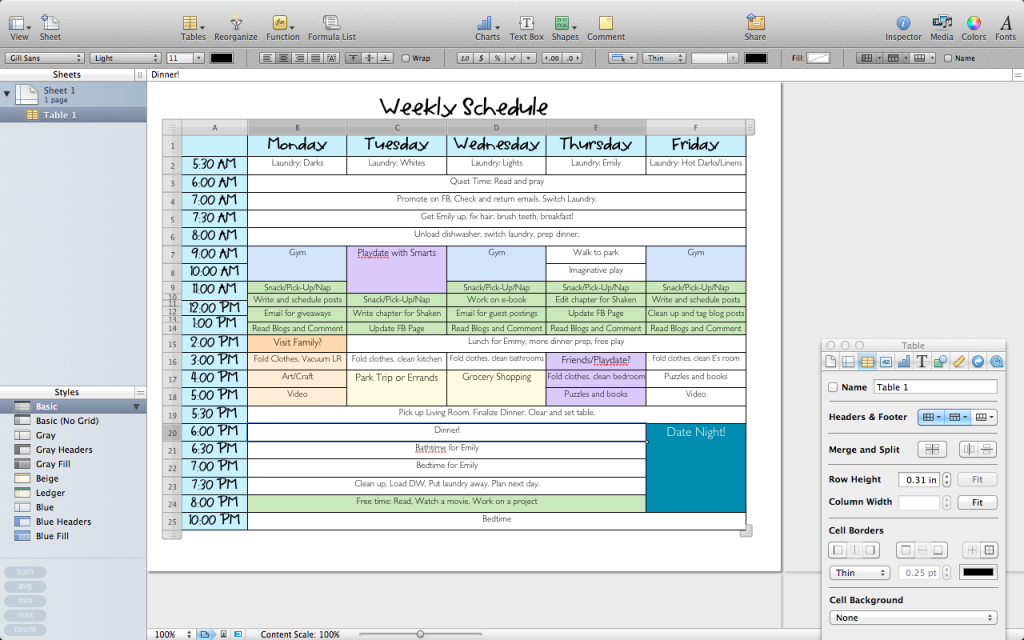Merge or unmerge cells. Merge cells: Select two or more cells, then choose Format Table Merge Cells (from the Format menu at the top of your screen). These are the results of merging cells: If only one of the cells contains content prior to merging, the merged cell retains the content and formatting of that cell.
Add a table to your PowerPoint slide and thenpopulate the table with content -- and thenwhat comes next? Probably you need to add or remove rows and columns. That's the case with most people who work with tables. But very few people realize that the tablecells can be made larger or smaller without influencing the entire row or column -- and that's something that can be easily achievedby merging or splitting cells in your existing table. This is essentially true for tables that have two header rows, or even withtables that have a long phrase in the header row, as shown within the sample table shown towards the top in Figure 1.
Figure 1: Some tables need to have merged or split cells
Notice that the header content, Weather in C and Weather in F both span two lines each whereas thedata below does not really need that much space. So merging the two header cells and then substituting the text in the merged cellmakes this table use space much more efficiently, as shown within the table that's shown at the bottom ofFigure 1, above.
Similarly there are plenty of reasons where you can benefit from splitting a large cell into two smaller cells without influencingthe rest of the rows and columns within your table -- this can be achieved using PowerPoint's Merge and Split options that you can find within Table Layout tab of theRibbon as shown highlighted inred, within Figure 2, below.
Figure 2: Merge and Split options for the table

Using these two options you can merge and split table cells as required. Note that you may find the Merge optiongreyed out if you have selected a single cell within the table. To explore more about Merge and Splitoptions, explore the sections below:
Merge Table Cells
Let us start with merging cells in a table: Lotsawater 1.7 for mac download.
- Select at least two (or more) table cells and access the Table Layout tab of theRibbon as shown highlighted in red, within Figure 3. Now click the Merge button that you can see highlighted inblue within Figure 3.
Figure 3: Table cells selected for merging - This will merge the selected table cells into a single cell. In Figure 4 you can see that the two cells selectedearlier are now merged into a single cell (highlighted in red).
Figure 4: Selected table cells merged into a single cell - Similarly you can select multiple rows and columns in a table and merge them into a single cell.
Split Table Cells
Unlike in Excel where you can only split cells that were previously merged, PowerPoint has no such limitations. However, you reallydo not want to split a cell unless you have a compelling reason. In our case, we are assuming that we merged some cells by error, andnow want to split them so that we can get back the structure of our original table. Follow these steps to split a selected cell intomultiple rows and columns in a table:
- Select the table cell that you want to split -- in Figure 5 you can see that the last cell within the first row isselected (highlighted in red). Then, click the Split button (highlightedin blue within Figure 5) within the Table Layout tab of the Ribbon.
Figure 5: Table cell selected for splitting - This brings up the Split Cells dialog box as shown in Figure 6. In this dialog box, enter thenumber of columns and rows that you want the selected cell to be split into. Then click the OK button.
Figure 6: Split Cells dialog box - This will split the selected table cell as shown in Figure 7 (highlighted in red).
Figure 7: Selected cell split into specified number of rows and columns - Select the table cells and split them as required. You may want to edit or add text in the split cells.
- Remember to save your presentation often.